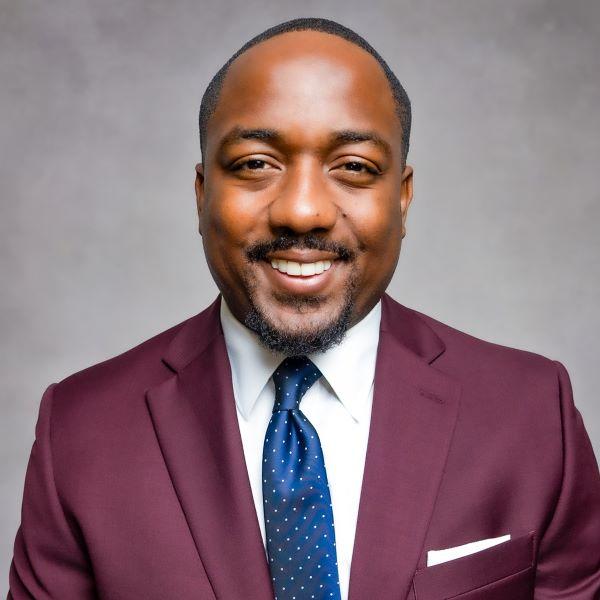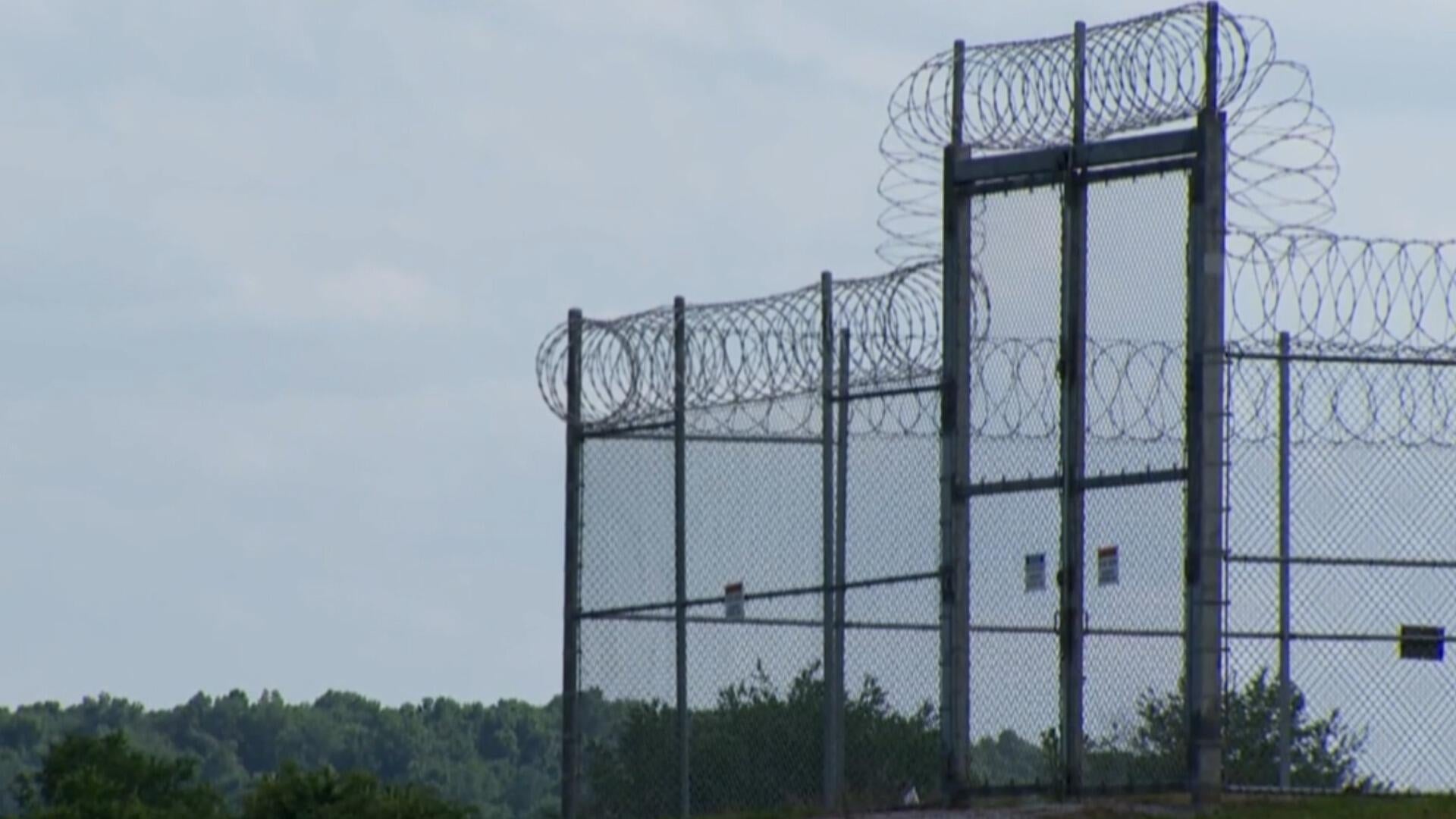Largest U.S. private prison operator faces lawsuit after inmate was killed a day before his release
Matthew Vogel was finishing up a six-month stint at the South Central Correctional Facility in Clifton, Tennessee, for a parole violation when he was allegedly beaten to death by a cellmate who was serving three life sentences for murder.
Vogel's cellmate is accused of bludgeoning him with a drainage cover before stabbing him with a shard of glass from a broken television, killing the 39-year-old one day before his scheduled release in August 2024. And according to a , Vogel's family claims cost-cutting and understaffing at the prison allowed it to happen. Vogel's family brought its case against CoreCivic, which operates the prison where Vogel died and is the largest private, for-profit prison firm in the nation.
Vogel "had a big heart, very emotional," his mother, Maria Googe, said in an interview with CBS News.
Nearly a year after his death, she still has questions: "Who dropped the ball? Did nobody hear it? Were there no guards that could have stopped it or intervened? There's just too many what ifs," she said.
The company has disputed the lawsuit's claims. CoreCivic adviser Steve Conry says, contrary to the claims in the lawsuit, its prisons are properly staffed.
"Over the course of an inmate's residence at our facility, alterations are made to housing and program assignments when it is appropriate to do so based on any changes in the inmate's particular circumstances," Conry said. "For security and privacy reasons, we cannot address specific details of an inmate's housing or custody."
When asked by CBS News whether the death of an inmate is considered a failure, Conry said: "One death is one death too many. We don't want any individual to die while they're in our care, but it does happen. We take it seriously."
Private prisons reemerge under Trump administration
The Vogel case comes at an inflection point for the federal use of private prisons. One of President Trump's first actions of his second term was to reestablish the use of private prison systems by federal agencies previously barred under the Biden administration.
CoreCivic could be one of the biggest beneficiaries of new federal contracts under Mr. Trump. CoreCivic has lobbied hard to play an increasingly prominent role in assisting in the detention effort, along with its role supplementing state and local prison needs.
The company has touted that among the valuable services it provides is the ability to build prisons faster and cheaper to relieve overcrowding. It says it also offers an array of vocational, education and substance-abuse recovery services as part of its privately run facilities.
"We have successfully partnered with federal, state and local government entities to creatively and efficiently meet their challenges in ways they could not do alone," CoreCivic told CBS News in a statement. "As a result, many systems are safer and better able to provide quality programming for the inmates in their care."
Still, CoreCivic has been repeatedly found in Tennessee to be deficient in staffing and turnover. In 2023 CoreCivic had 146% turnover rate for its prisons versus 37% for state-run prisons, as well as higher than average unfilled corrections officer positions. A survey of employees for that audit found that staffing issues left them feeling unsafe, and made the job more dangerous.
CoreCivic, which operates four prisons in Tennessee, has disputed CBS News' analysis of that state data, which appears to show that inmates are twice as likely to be killed in CoreCivic prisons compared to government-run prisons.
"Simply comparing aggregate numbers across a time frame does not account for a wide range of important factors and can result in apples-to-oranges comparisons and inaccurate conclusions," the company told CBS News in a statement. "For example, the likelihood of committing a homicide during incarceration can be influenced by numerous factors, such as security classifications, gang affiliations and crimes committed, among others."
Tennessee seeks reforms
State lawmakers in Tennessee have recently taken notice and passed legislation that mandates a 10% reduction in inmate populations at private prisons if their average death rate is double that of state-run facilities. CoreCivic, the sole private prison operator in the state, currently meets the threshold for reduction, according to state Sen. Mark Pody, who introduced the bill during legislative debate.
One Tennessee CoreCivic prison in particular, Trousdale Turner Correctional Center, has come under scrutiny including by the Department of Justice's Civil Rights Division, which last year.
"Publicly available information suggests that Trousdale Turner has been plagued by serious problems since it first opened its doors," said then-United States Attorney Henry C. Leventis.
According to the Civil Rights Division's director at that time, Assistant Attorney General Kristen Clarke, "Recent reported incidents of violence include stabbings of five people within a three week span in early 2024, at least 196 assaults, two murders and 15 deaths that the facility classified as accidental between July of 2022 and June of 2023, at least 90 incidents of sexual misconduct in that same timeframe, large amounts of contraband, including 97 knives found in June of 2023 alone."
CoreCivic says it is cooperating with the investigation.
"We take this matter seriously and are fully committed to working closely with the U.S. Department of Justice (DOJ) and Tennessee Department of Correction (TDOC) officials to address any concerns," the company said. "Out of respect for their process, we defer to USDOJ and TDOC regarding any concerns or allegations related to the investigation."
The company says the safety and dignity of inmates is a top priority for its leadership, and for staff at Trousdale Turner.
"That's why we've worked closely with TDOC to identify and implement policies and processes that enhance safety and security while providing meaningful programs and services geared towards helping the individuals in our care prepare for successful reentry," the company said. "We take this matter very seriously and are committed to working closely with both TDOC and USDOJ officials to address areas of concern."
There is evidence to suggest some violence continues. Over the past weekend, law enforcement responded to what the sheriff described as a riot late Sunday night at the Trousdale Turner facility involving as many as 200 incarcerated individuals. Original reports were that at least two corrections officers were held hostage, although CoreCivic now disputes that. All got out safely and with no major injuries.
Emergency personnel were dispatched at least 47 times to Trousdale Turner in the first 6 months of 2025, according to publicly available records reviewed by CBS News. While a majority of those calls were for medical emergencies, they also included four suicide attempts, five suspected overdoses and 9 stabbings.
Now with the increase in immigrant detentions, CoreCivic appears poised for major growth.
"I've worked at CoreCivic for 32 years, and this is truly one of the most exciting periods in my career," CEO Damon Hininger told shareholders during a February 2025 earnings call, which coincided with the Trump administration's immigration crackdown and new federal contracts with private prison companies.
CoreCivic donated $500,000 to Mr. Trump's inauguration.
Only about 7% of prisoners in the U.S. are housed in private prisons, but nearly 90% of U.S. Immigration and Customs Enforcement detainees are held in privately run facilities.
In March, the company received a contract worth up to $22.6 million to reopen an ICE facility in Leavenworth, Kansas, although a judge recently from moving forward after the city sued. A second $31.2 million contract was awarded in April for a detention center in California City, about 100 miles north of Los Angeles.
A death in custody
Attorney Ben Raybin, who is suing CoreCivic on behalf of the Vogel family, told CBS News he believes the challenges at the company's facilities come down, in part, to staffing.
"This is a company that makes tens of millions of dollars every year and yet leaves its prisons understaffed," Raybin said in an interview with CBS News.
Raybin argues that staffing concerns were behind the company's decision to give a lower risk rating to the man accused in Vogel's death, cellmate Travis Bess. Bess had been convicted in 2014 of killing a previous cellmate.
The company reduced a risk rating for Bess from a four — the most dangerous — to a zero, Raybin said.
A document obtained by Raybin and shared with CBS News shows a computer printout that calculated Bess' risk factors for recidivism. Raybin told CBS News that it appears someone overrode the computerized scoring. Tennessee Department of Corrections guidelines allow this in certain circumstances, but require an accompanying explanation. Raybin says no explanation for the reduction was provided.
According to Department of Justice , individuals with higher risk scores receive stricter supervision or more intensive interventions, while those with lower scores face fewer restrictions or minimal intervention. Christopher Slobogin, director of Vanderbilt Law School's Criminal Justice Program, says that "people who are higher risk will probably need more risk management services, which will mean more staff and other resources."
Although Tennessee does not release statistics for the cost per prisoner based on custody level, one state that does is North Carolina. According to , the daily cost of housing an individual prisoner in close custody is $174.22, versus $151.58 for medium.
"One of the chief concerns is that private prison companies are beholden to the bottom line," said Eunice Cho, an attorney with the ACLU's National Prison Project. "Because they are ultimately accountable to their investors there will always be ways that private prison companies are looking to cut costs."
As for Googe, she says she's still waiting for answers to what happened to her son.
"It's something that nobody should ever have to deal with," she said.






